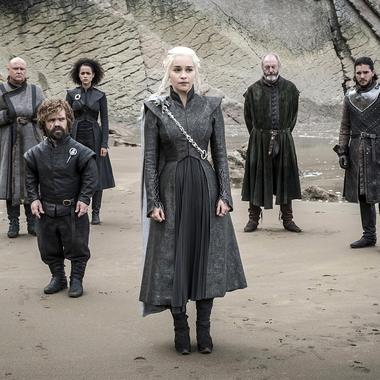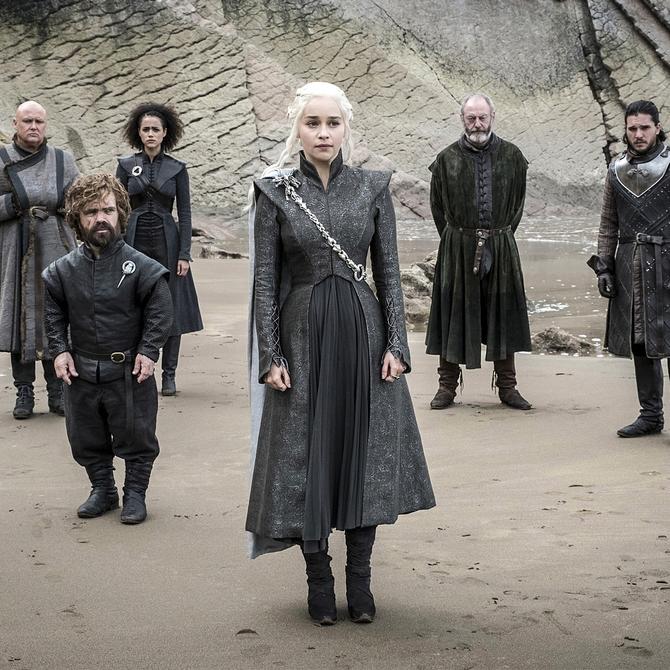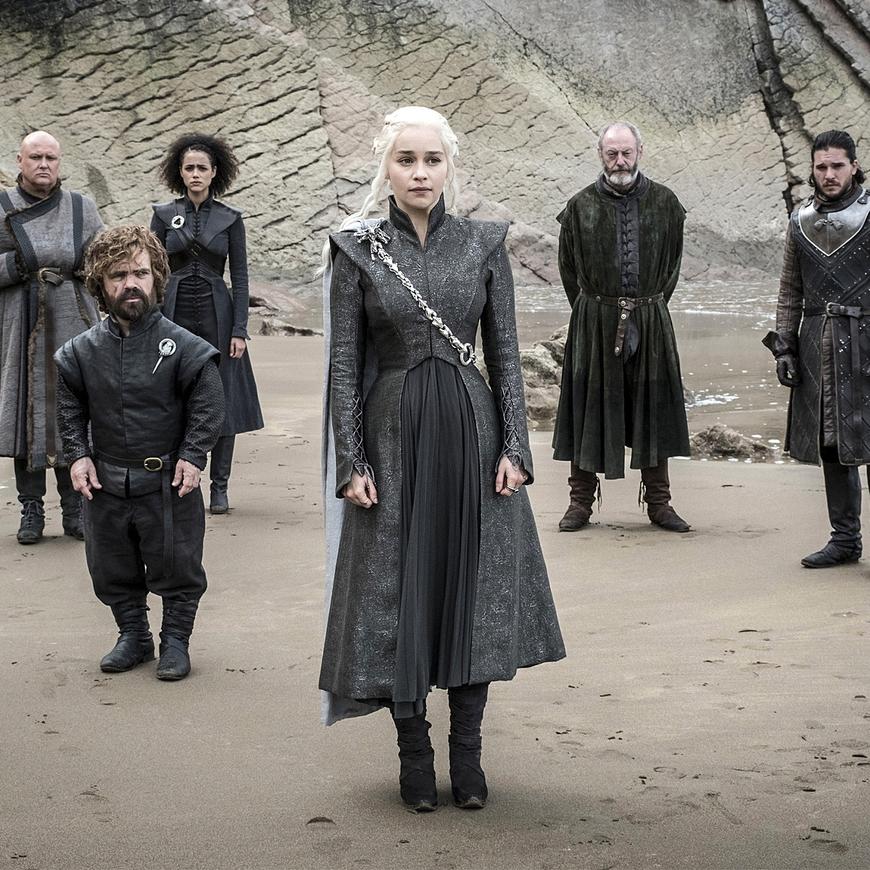



The Game of Thrones series, based on George R.R. Martin's A Song of Ice and Fire novels, has captured the attention of audiences worldwide. With its intricate plotlines, complex characters, and shocking plot twists, the series has become a cultural phenomenon. This analysis explores what makes Game of Thrones so intriguing to watch, how it masterfully utilizes plot twists, its relation to human history, a brief plot description, an analysis of the ending's success, and the audience's mixed reception to the final episode.
Intrigue and Plot Twists:
One of the primary reasons Game of Thrones is so captivating is its intricate web of intrigue and constant plot twists. The series thrives on unpredictability, where no character is safe from unexpected turns of fate. This unpredictability creates a sense of tension and excitement, as viewers are constantly on the edge of their seats, unsure of what will happen next.
The plot twists in Game of Thrones are often devastating, shattering audience expectations and challenging traditional storytelling conventions. The unexpected deaths of major characters, such as Ned Stark in the first season, establish the series' reputation for bold storytelling. These shocking moments subvert narrative conventions and reinforce the show's mantra: "Valar Morghulis" (All Men Must Die).
Furthermore, Game of Thrones excels at subverting traditional hero narratives. The moral ambiguity of the characters and their intricate motivations add layers of complexity to the storytelling. This departure from conventional good versus evil tropes resonates with audiences and keeps them invested in the series.
Relation to Human History:
Game of Thrones draws inspiration from various periods of human history, incorporating elements of medieval Europe, ancient Rome, and feudal Japan. The political intrigue, power struggles, and complex alliances depicted in the series mirror historical events such as the Wars of the Roses and the fall of the Roman Empire. By grounding its fantastical elements in historical context, Game of Thrones offers a reflection of human nature and the timeless struggle for power.




Brief Plot Description:
Game of Thrones is set in the fictional continent of Westeros, where noble houses vie for the Iron Throne, the ultimate seat of power. The story primarily revolves around the Stark family, the Lannisters, and Daenerys Targaryen, each with their own ambitions and challenges. As the series progresses, political alliances shift, wars are fought, and supernatural forces rise, culminating in an epic battle against the existential threat of the Night King and his army of the dead.
Analysis of the Ending:
The ending of Game of Thrones, which concluded in the eighth season, was met with mixed reception from the audience. While some viewers appreciated the resolution of various character arcs and the culmination of long-standing conflicts, others felt disappointed by the narrative choices and pacing of the final season.
One aspect that caused dissatisfaction among some viewers was the condensed storytelling in the final season, resulting in rushed character developments and plot resolutions. The fast-paced nature of the season left little room for the intricate political maneuvering and character-driven storytelling that characterized earlier seasons.
Additionally, the unexpected twists and character decisions in the final episodes were met with controversy. Some viewers felt that certain character arcs were undermined or rushed, leading to a lack of satisfaction in the resolution of their stories.
Audience Reception and Controversy:
The last episode of Game of Thrones, titled "The Iron Throne," faced significant backlash from a portion of the audience. Criticisms ranged from the perceived unsatisfactory resolution of major storylines to inconsistencies in character motivations. Many fans felt that the final episode failed to live up to the high expectations set by earlier seasons and lacked the depth and complexity that had made the series so beloved.
Part of the controversy can be attributed to the immense popularityof the series and the heightened expectations that come with it. Game of Thrones had built a passionate and dedicated fanbase over its run, and the final season's departure from some established character arcs and narrative choices left a portion of the audience feeling let down.
Conclusion:
Game of Thrones captivated audiences with its intricate plotlines, shocking twists, and morally ambiguous characters. The series drew inspiration from human history, weaving together elements of political intrigue and power struggles reminiscent of real-world events. The ending of the series, while divisive among fans, generated significant discussion and debate.
The success of Game of Thrones can be attributed to its ability to subvert expectations, create a sense of constant tension, and ground its fantastical elements in relatable human experiences. The show's exploration of power dynamics, loyalty, and the human capacity for both good and evil resonated with viewers, making it a cultural phenomenon.
While the final episode faced criticism for its rushed storytelling and narrative choices, it is important to acknowledge that the series as a whole made a lasting impact on the television landscape. Game of Thrones pushed the boundaries of what was possible in a television series, captivating audiences with its intricate storytelling, unforgettable characters, and willingness to challenge conventions.